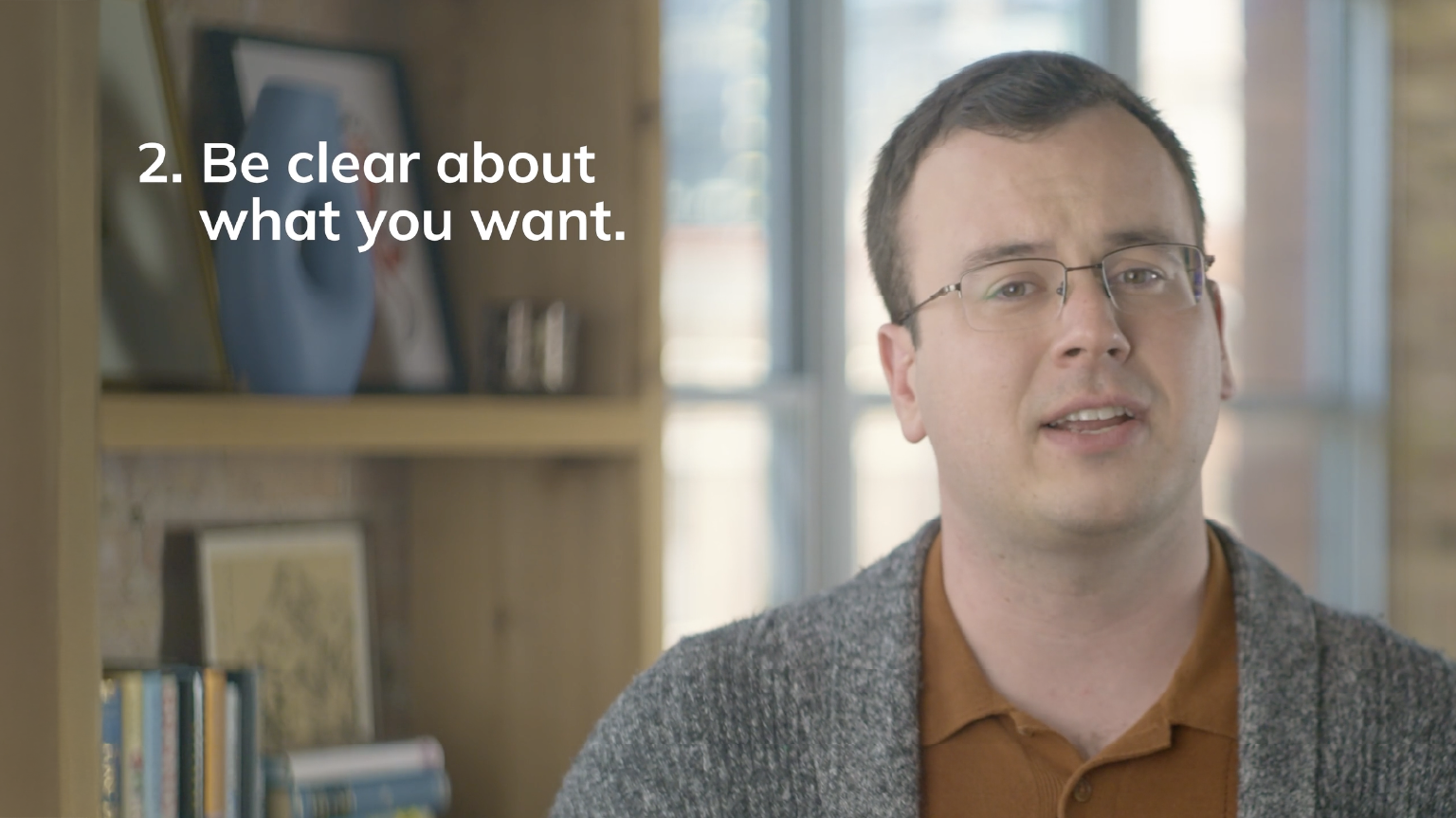Video: Setting Financial Boundaries
In this 2-minute video, Beyond Finance’s Certified Financial Therapist, Nathan Astle, explains:
- How boundaries actually protect relationships
- How to identify what boundaries you may need to put in place
- A 4-step approach to setting a boundary
Transcript:
Every healthy relationship needs boundaries — whether with friends, family, romantic partners, or even ourselves. Boundaries aren’t about shutting people out; they’re about protecting relationships from resentment and misunderstanding. They define what behaviors are acceptable to us.
Financial boundaries can be especially tough. Maybe you feel pressured to support someone financially, buy gifts, or split bills equally even if you order less. It’s important to think about your values and decide what boundaries make you feel secure and respected. Without clear limits, hurt and frustration can build.
Ask yourself:
- Are there relationships where I need clearer boundaries?
- Are there situations causing resentment?
- Is there something I haven’t expressed yet?
Reflecting on these can help you identify boundaries that protect your relationships — whether they’re about money or something else.
When it comes to setting those boundaries, here’s a 4-step approach that can help:
1. Reinforce the relationship’s value.
Express what the person means to you. For example, “I love you and value our relationship. I want to make sure we stay close.”
2. Be VERY clear about what you want.
Focus on specific actions. For example, instead of saying, “I don’t want to feel judged,” say, “I’d like you to stop commenting on my financial choices.”
3. Highlight the positive outcomes
For example, “This will help me feel like I can talk to you about anything.”
4. Share what will happen if the boundary isn’t followed.
For instance, “If you continue to make these comments, I won’t visit as often.”
Remember, it’s not selfish to protect yourself. You can’t control how someone reacts to a boundary, but their reaction doesn’t diminish the boundary’s importance. It’s crucial to get comfortable saying “no” to things that hurt you.
